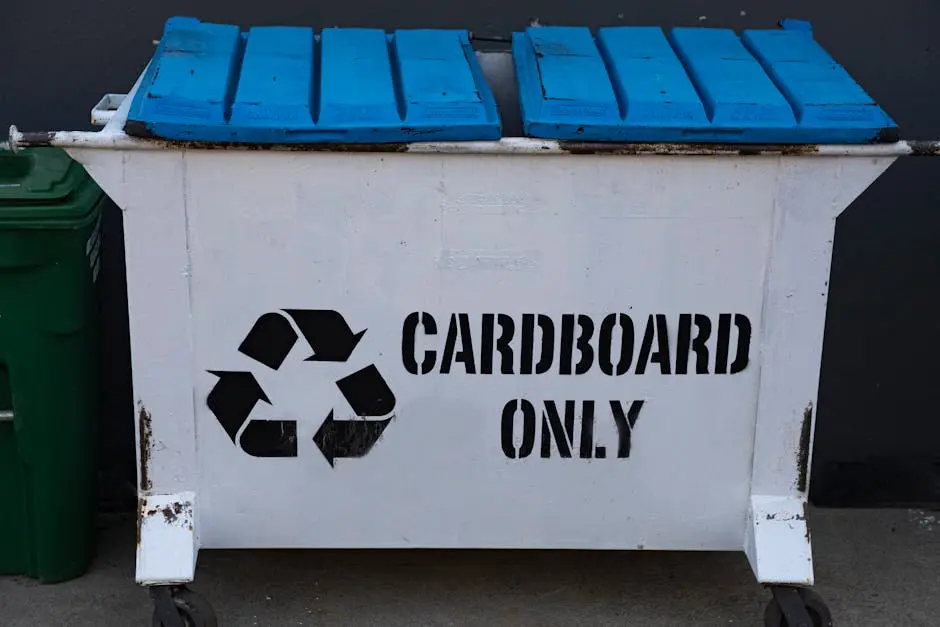When it comes to clearing out clutter or managing waste during a renovation, a debris box can be incredibly useful. However, not all items are permitted in these containers. Understanding what can and cannot go into a debris box is crucial for proper disposal and compliance with local regulations.
General Prohibited Items
Certain universally banned items should never be placed in a debris box due to safety and environmental concerns.
While it might be tempting to toss anything you want to get rid of into a debris box, there are several items you should never include. This is primarily because certain objects pose serious risks to both people and the environment. To start, materials such as asbestos, which is often found in older buildings, should not be disposed of in a typical debris box. Due to its hazardous nature, it requires special handling to prevent health risks.
Moreover, items that could lead to potential injuries or accidents, like broken glass or sharp metals, need to be handled with caution. These materials can cause harm to those handling the debris after it’s collected. Therefore, ensuring these types of items are disposed of safely is critical to maintaining safety standards. Certain objects not only breach safety protocols but also disrupt waste management processes, making it crucial for individuals to adhere to the guidelines to avoid penalties or complications.
Hazardous Materials
Items like paint, chemicals, and batteries are classified as hazardous and require special disposal methods.
Hazardous materials are a significant category of items that cannot be placed in debris boxes. Paint, paint thinners, pesticides, and certain cleaning agents are examples of substances that pose environmental risks. These items can leach toxic chemicals into the ground if not disposed of properly, potentially contaminating water sources and harming ecosystems. Even common items like household batteries contain heavy metals and acids that must be disposed of at specialized facilities to prevent such environmental hazards.
For example, electronics like cell phones and computer components contain harmful metals and plastics that can release toxins into the soil and water if not recycled appropriately. As explained in resources like 12 Things You Can’t Put Into a Dumpster, understanding which items are classified as hazardous is key to ensuring they are disposed of in ways that minimize harm to our planet.
Electronic Waste
Electronics contain components that can be harmful to the environment and must be recycled properly.
The rise of electronic waste is a growing concern. Items such as televisions, computers, and smartphones are frequent culprits in illegal dumping. Electronic devices often house materials such as lead, mercury, and other dangerous chemicals, making their presence in landfills or debris boxes dangerous. Not only do they contribute to toxic leachates in landfill sites, but their recyclable components also go to waste, missing the opportunity for reuse.
Finding an e-waste recycling center is an environmentally responsible decision that helps divert these materials away from landfills. By doing so, you support efforts to reclaim valuable materials and eliminate the hazard they present when improperly disposed of. Recycling electronics allows for the recovery of metals such as copper and gold, thereby reducing the need for new raw materials and conserving resources.
Biological Waste
Medical waste or items that could pose biological hazards should never be mixed with general debris.
When dealing with biological waste or any medical-related debris, it is crucial to recognize that these materials require specialized disposal. Items like needles, medical swabs, and other biological waste can pose serious health risks if not handled correctly. Such waste must be disposed of through services that specialize in handling potentially infectious materials.
Incorporating biological waste with regular trash poses harm to sanitation workers and risks pathogen exposure to the community. Therefore, utilizing medical waste services that comply with local laws is important for safeguarding public health. Knowing the right disposal methods can prevent contamination and ensure that public health standards are maintained.
Check Local Regulations
Regulations can vary by location; always verify your area’s specific guidelines for waste disposal.
Different areas have varying local regulations that can affect what can be disposed of in a debris box. It’s imperative to check city or county-specific guidelines before depositing waste. Some regions may have stricter rules relating to the disposal of certain materials, including rigid controls on hazardous substances and specific e-waste protocols.
Websites such as 12 Things You Can’t Put Into a Dumpster provide an insightful starting point for understanding these restrictions and can guide you to the right resources. By following these recommended practices, you ensure compliance and avoid potential fines or legal issues.
Responsible Waste Management
Proper disposal of waste is not only responsible but also essential for maintaining safety and environmental care. By knowing which items are prohibited in a debris box, you can ensure efficient cleanup and contribute to eco-friendly practices.

